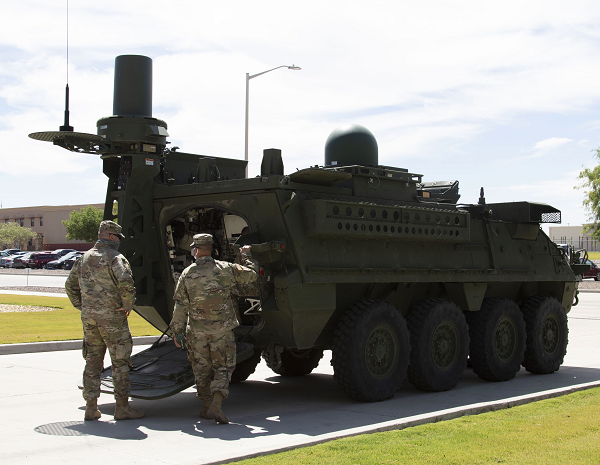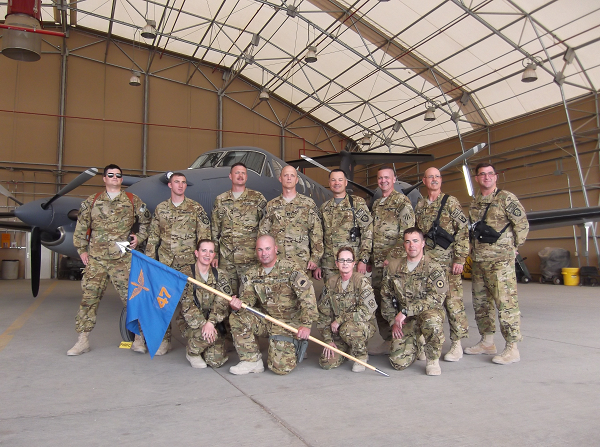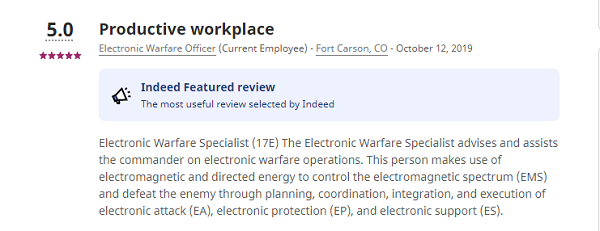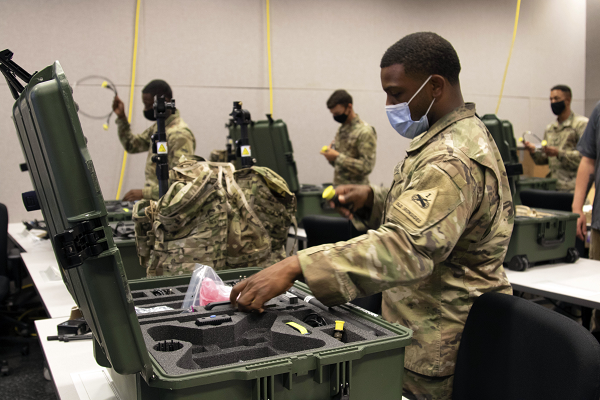If you are on the verge of joining the Army, you have likely noticed there are several job and training opportunities. If you have looked at the 17E MOS Electronic Warfare Specialist, you might wonder what it means to perform this job.
The Electronic Warfare Specialist MOS is an entry-level position for enlisted members.
Also, this MOS is an integral part of the defense of the United States.
However, there are important details about this career that you must know.
Table of Contents
#1. 17E MOS: Education, Qualifications, and Training

Before becoming an Electronic Warfare Specialist, it is ideal to understand what that job entails fully.
In the 17E MOS, you will handle electronic warfare operations.
Electronic Warfare Specialists use directed and electromagnetic energy against the enemy’s electronic weapon systems.
Before performing in this position, you must meet minimum expectations to qualify and go through training.
Also, it is essential to note that this particular MOS is for enlisted members.
Furthermore, in the past, this career was a 29-series career field.
However, the Cyber 17 series came into being, and the 29 series was reclassified. For those who are an officer, their MOS is 17B.
Before the reclassification, soldiers could only get into this career field once they became non-commissioned officers.
However, this change means that army soldiers can join this field right after basic training.
Education
If you want to be an Electromagnetic Warfare Specialist, you must go through training first.
For instance, all Army soldiers require 10 weeks of basic training.
Also, if you want to be a 17E MOS, you have 28 weeks of Advanced Individual Training (AIT) to attend.
The advanced training gives you the entry-level skills to perform your job as an Electromagnetic Warfare Specialist.
Qualifications
In order to be an Electromagnetic Warfare Specialist, you need to meet some basic scores on the ASVAB test.
For instance, you need a score of 105 on the Surveillance and Communication (SC) section of the test.
Also, you need a score of 105 on both the Electronics section (EL) and the Skilled Technical (ST) sections of the ASVAB test.
The physical demands of this MOS are in the medium range.
You must have normal color vision, as well.
Candidates must have a high school diploma or their GED and have taken at least one year of algebra in high school.
Furthermore, to be an Electromagnetic Warfare Specialist, you need a Top Secret security clearance, an excellent military personnel file, and a citizen of the United States.
There are no waivers for any of these qualifications.
Also, once you finish the course, you need to have at least 36 months left on your enlistment contract.
The education you receive also awards you with nationally recognized certifications.
This means that the skill you earn in the Army as a 17E MOS translates well into the civilian world.
Training

To become an Electronic Warfare Specialist, you must attend training at Fort Gordon, Georgia.
The training for Electronic Warfare Specialists is 28 weeks in length.
Once you complete the training, you earn the MOS of 17E.
During AIT, you will find some of the training is classroom-based.
However, you do receive a lot of on-the-job training with instructors.
Also, it’s essential to know that this is entry-level training.
At your first duty station, you will continue to learn and grow and this career field.
#2. What Does an Army Electronic Warfare Specialist Do?
An Army Electronic Warfare Specialist uses electromagnetic energy to attack the enemy.
When you think about an electric magnetic spectrum, think of a range of frequencies.
Having access to this range of frequencies prevents our enemies from communicating with one another.
Also, electronic warfare impacts all military areas, be it by sea, on the ground, or in the air.
If you have a job in the Army as an Electromagnetic Warfare Specialist, you will plan and follow through with electronic warfare operations.
You will use the electromagnetic spectrum to control your enemy’s ability to use that same spectrum.
Your training will ensure you know the tactical operation, technical procedures, and electronic and mechanical warfare skills.
#3. 17E MOS Job Description
The job description for an Army Electronic Warfare Specialist is varied.
A soldier in this field works with Electromagnetic and Direct Energy to defeat the enemy by coordinating and executing electronic attacks.
At the same time, Army Electronic Warfare Specialists protect the United States’ abilities to communicate and conduct warfare in this manner.
Also, those in this career evaluate our risks, plan a course of action, and plan out any necessary countermeasures.
#4. What does an Electronic Warfare Specialist make?
Those who served in the Army as Electromagnetic Warfare Specialists receive pay based on their rank and years of service.
There is not any particular MOS in the Army that pays more than others.
| Pay Grade | Less than 2 Years | Over 2 Years | Over 3 Years | Over 4 Years | Over 6 Years |
|---|---|---|---|---|---|
| E-1 | $1,917.60 | $1,917.60 | $1,917.60 | $1,917.60 | $1,917.60 |
| E-2 | $2,149.20 | $2,149.20 | $2,149.20 | $2,149.20 | $2,149.20 |
| E-3 | $2,259.90 | $2,402.10 | $2,547.60 | $2,547.60 | $2,547.60 |
| E-4 | $2,503.50 | $2,631.60 | $2,774.10 | $2,914.80 | $3,039.30 |
| E-5 | $2,730.30 | $2,914.20 | $3,055.20 | $3,199.20 | $3,423.90 |
| E-6 | $2,980.50 | $3,279.90 | $3,424.80 | $3,356.50 | $3,711.90 |
| E-7 | $3,445.80 | $3,760.80 | $3,905.10 | $4,095.30 | $4,244.70 |
There are other benefits to being a soldier in the Army beyond a monthly salary, as well.
#5. 17E MOS Benefits
Benefits include 30 days paid time off a year, an excellent retirement plan, and cash bonuses depending on the Army’s needs for specific fields.
However, this usually happens at enlistment or reenlistment time.
Soldiers receive medical insurance, housing allowance, access to educational benefits, and a food allowance.
There are retirement benefits for being in the Army, as well.
#6. Job Reviews
According to indeed.com, job reviews for Electronic Warfare Specialists reveal a solid career choice.

However, because of the reclassification, they are not a vast amount of job reviews.
However, those we found show the position very favorable.

Related Article – Navy Special Warfare Operator (SO) Aka ‘Navy SEAL’: Career Profile
#7. Civilian Job Opportunities
There are several civilian job opportunities for those in the 17E MOS.
Occupations range from broadcast technicians, who average about $84,860 a year.
The outlook for that particular job is average growth. Furthermore, broadcast technicians need an associate degree.
If you have a bachelor’s degree, you could work as an Information Systems Manager for $159,000 a year. The outlook for this job is bright.
Other options include database analysis and electronic engineering technician.
Conclusion
If you join the army as an Electronic Warfare Specialist (MOS 17E), you will use electronic magnetic energy against your enemies.
After you meet the minimum expectations to qualify for this position, you will attend basic training before going on to your technical training for 28 weeks in Georgia.
This training will give you the skills necessary to perform your job in an entry-level position. You will gain more skills as you work in your field at your permanent duty station.
The training you receive in the Army for this career lends itself to the civilian world.
There are many profitable jobs you are qualified to perform.
For instance, you could be a broadcast technician with just an associate’s degree.
However, if you advance your degree to the bachelor’s level, your earning potential is even higher.
See Also
Air Force Cyber Warfare (1B4X1): Career Details
US Navy Aviation Electronics Technician (AT): Career Profile
References:
- Replacing Dog Tags: 6 Things You Need to Know - June 28, 2024
- Navy OAR Test Study Guide - June 24, 2024
- 10 Best Sniper Movies of all Time - June 20, 2024
Originally posted on October 2, 2021 @ 3:49 pm
Affiliate Disclosure: This post may contain affiliate links. If you click and purchase, I may receive a small commission at no extra cost to you. I only recommend products I have personally vetted. Learn more.


Thanks for putting this out there. I contacted you guys about this MOS before my son shipped out and you kept your word on doing the research. My son is currently at FT Gordon and he is loving it. The only complaint so far is not been able to have breakfast before class. Go Army.
No problem, glad to help Anthony.
Rob V.
Owner / Founder
OperationMilitaryKids.org
The AIT is 28 weeks of training on average, not 9 weeks
Source: I graduated a month ago
Thanks for that, Matt. Just updated the article, cheers.
Rob V.
OMK Founder